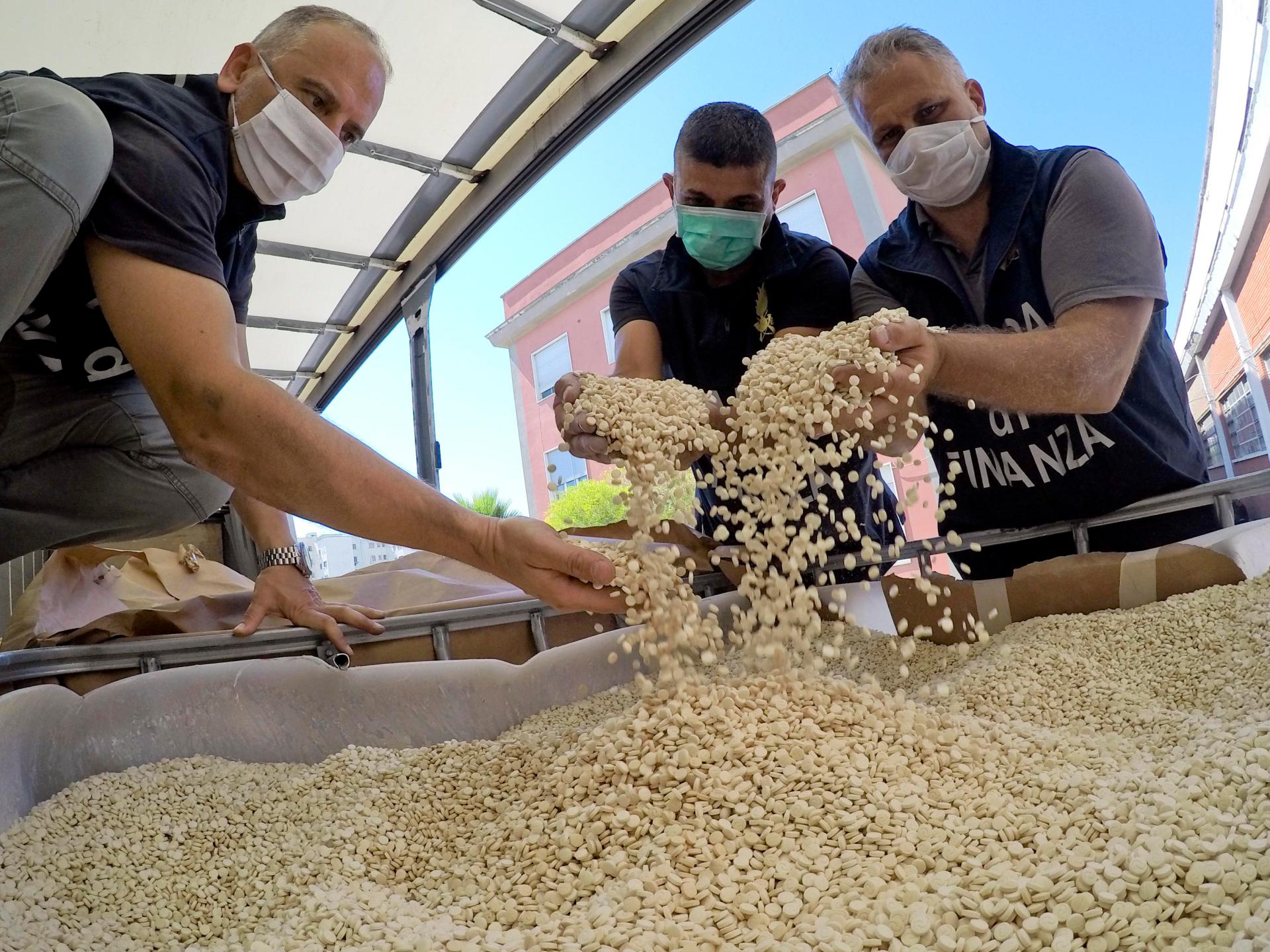Britain and the United States have imposed sanctions on 11 names it said were linked to the illicit Syrian drug trade that helps generate profits for the Syrian government.
Britain has said the Captagon trade is worth up to $57 billion for the government of Syrian President Bashar al-Assad and that the 11 individuals added to the sanctions list are businessmen, militia leaders or relatives of the president.
Britain said the group had helped produce or smuggle grain through the Middle East and into Europe and Asia.
British Minister of State for the Middle East Tariq Ahmed said that "the Assad regime is using the profits of the Captagon trade to continue its terrorist campaign against the Syrian people." "The UK and US will continue to hold the regime accountable for brutally oppressing the Syrian people and fuelling instability in the Middle East."
In turn, the US Treasury Department said in a statement that the United States today imposed new sanctions on 6 people, including two relatives of Syrian President Bashar al-Assad, for their role in the production or export of Captagon.
The ministry said the trade in Captagon is worth billions of dollars in profit, and that the sanctions highlight the role of Lebanese smugglers and the Assad family's dominance of the trade in this dangerous stimulant that contributes to funding the Syrian regime's government.
Andrea M. Jackie, director of the Treasury Department's Office of Foreign Assets Control, said: "Syria has become a world leader in the production of addictive Captagon, much of which is smuggled through Lebanon."
"Together with our allies, we will hold accountable those who support Bashar al-Assad's regime with the profits of illicit drug trafficking and other financial assistance that enables the regime to continue to oppress the Syrian people."
What are Captagon pills?
Captagon pills, by their scientific name Fenethylline, are made from a combination of central nervous system stimulant amphetamine and theophylline.
Manufactured in early 1961, the drug has since been used to treat children with attention deficit hyperactivity disorder (ADHD) or as an alternative treatment for narcolepsy and depression. In contrast, Captagon pills are a very addictive substance, which is precisely why they have become illegal in most countries of the world since 1986.
On September 19, the French newspaper "Le Figaro" said that Syria has become the largest producer of Captagon in the world, and Jordan and Lebanon from its corridors, noting that more than 250 million pills were seized during the past year.

